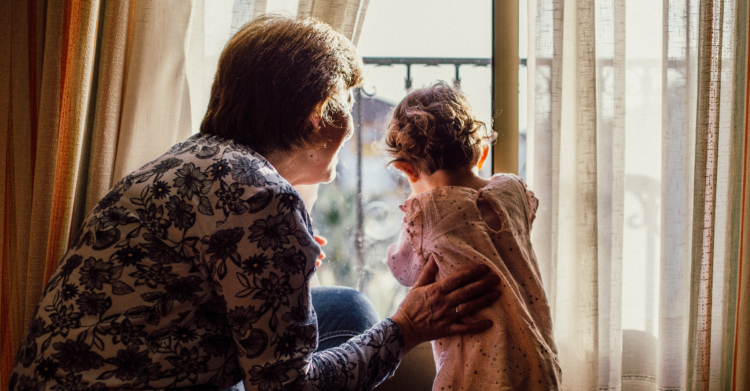We like to imagine that every family could fit into the image of a “perfect”, “normal” nuclear family. Two parents, kids, the white picket fence, etc.
But seriously, that’s probably in the minority these days. That’s not even a bad thing! Many children grow up safely, healthily, and loved in whatever way their family may be formed.
Still, even when admitting that every family is different, studies often show that certain situations can have different effects on the child’s future wellbeing.
One relationship that’s studied a lot is the one between grandparents and grandchildren of all ages.
While each study’s specific focus may vary, it’s becoming clearer that a strong bond with grandparents can make a big difference in the wellbeing of a child.
And as lifespans increase, the effects on adult grandchildren become more important too.

A study in the journal The Gerontologist looked at how solidarity between grandparents and adult grandchildren affected the mental health of both parties.
In particular, they focused on symptoms related to depression.
To measure “solidarity”, the researchers looked at the “links between levels of affinity, contact, and exchange” within the relationship.
As a layman, I understand that to mean they looked at how much the grandparent/grandchild liked each other, how much time they spent in contact with each other, and how much they did for each other.
The study used a sample containing 374 grandparents and 356 adult grandchildren.

They then followed pairs (dyads) for 19 years to see how their relationships changed and how that affected well-being.
For dyads with high affinity (or “emotional closeness and consensus of opinions”) there were fewer reported depressive symptoms for both generations.
However, it was unclear if not having any affinity has negative consequences. So while forging a strong bond with grandpa is good, not having the opportunity doesn’t necessarily mean you’re doomed to depression.
It gets interesting when the amount of contact between the individuals was looked at.

In the end, it really seems to matter how much you like the other person. If contact tends to lead to disagreements and stress, then it can actually lead to more depressive symptoms for both parties.
So if you and grandma just can’t see eye-to-eye on something, it may be better for both of you to limit visits to holidays. Even if you love them, that doesn’t mean you get along.
So where does that leave us in terms of practical advice?
Perhaps simply that if the grandparents are able and willing to spend plenty of time with grandkids early on, then the closeness of the bond formed can aid in mental health in the future.
Kimberly Agresta, co-founder of Englewood’s Agresta Psychotherapy Group put it well in an interview with North Jersey :
“If parents regularly involve grandparents in their child’s life early on, a child can develop real emotional closeness to the grandparent and begin to see the grandparent as a source of strong social support. So a child will feel that they have other adults, aside from their parents, who love and care about them in the same way, and this adds to their sense of stability and security.”
Even if the parents and grandparents have a contentious relationship, closeness with the child should be encouraged.
Assuming that the underlying issue isn’t disruptive or dangerous for the child’s welfare, obviously.
h/t: The Gerontologist , North Jersey

















































